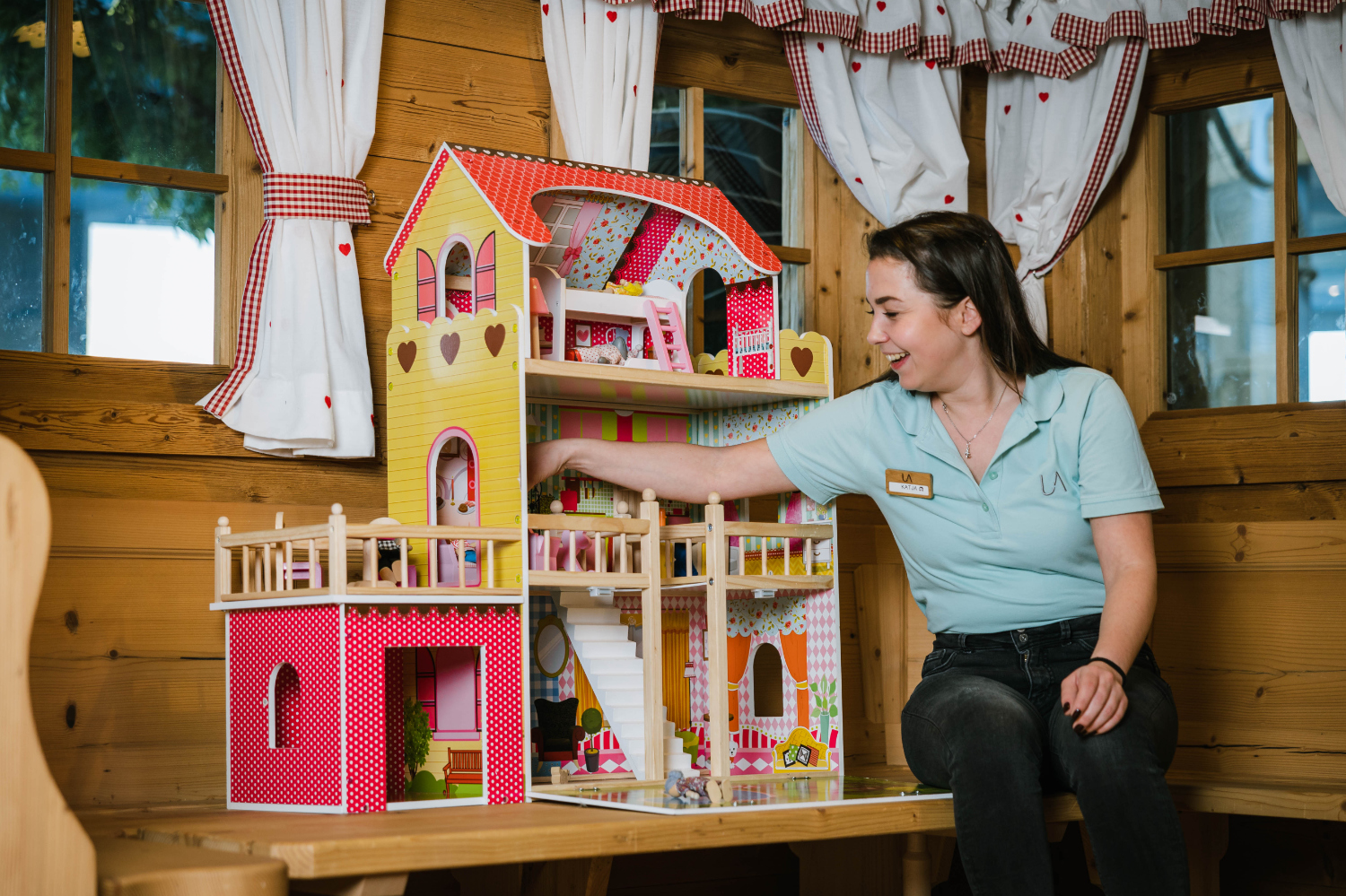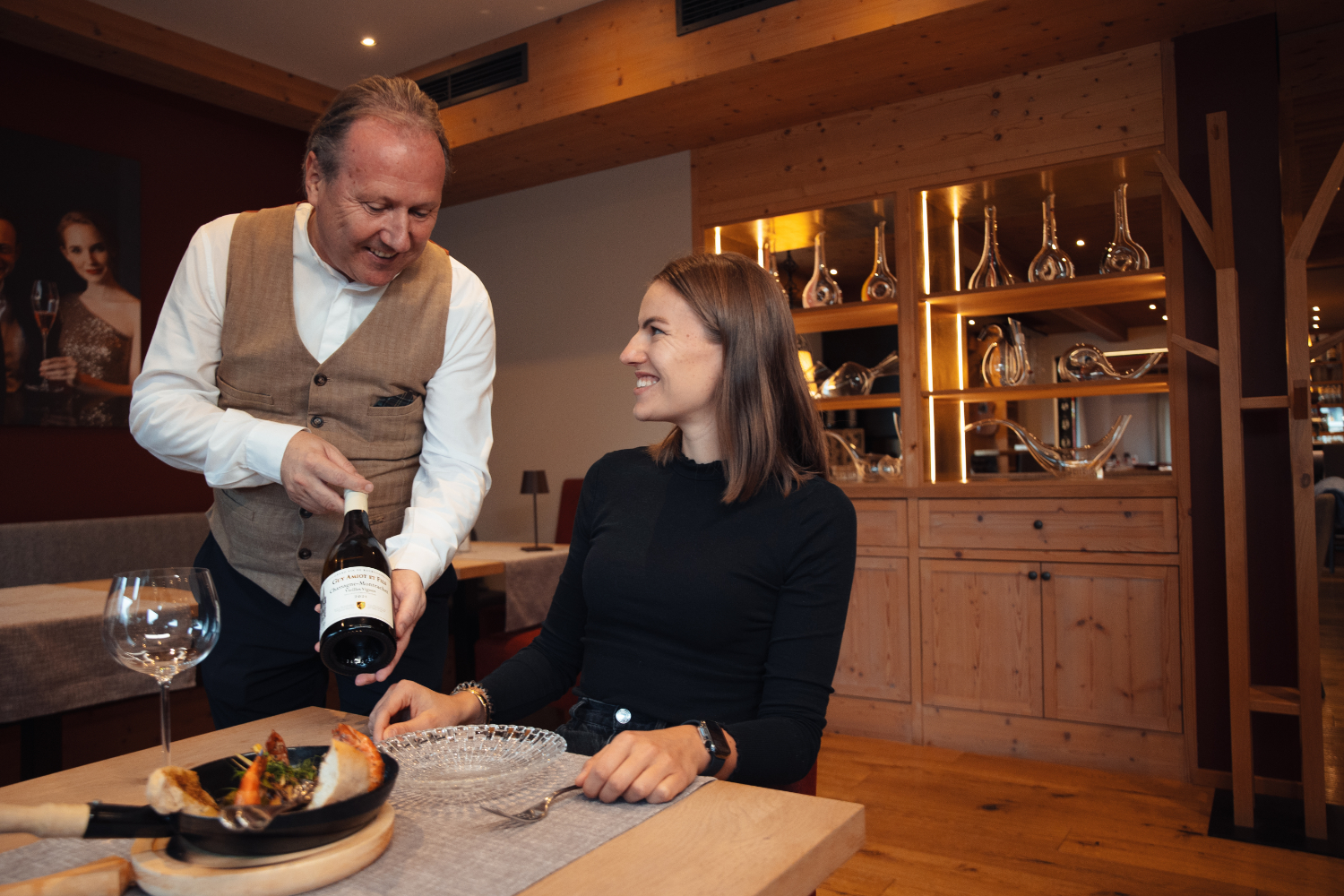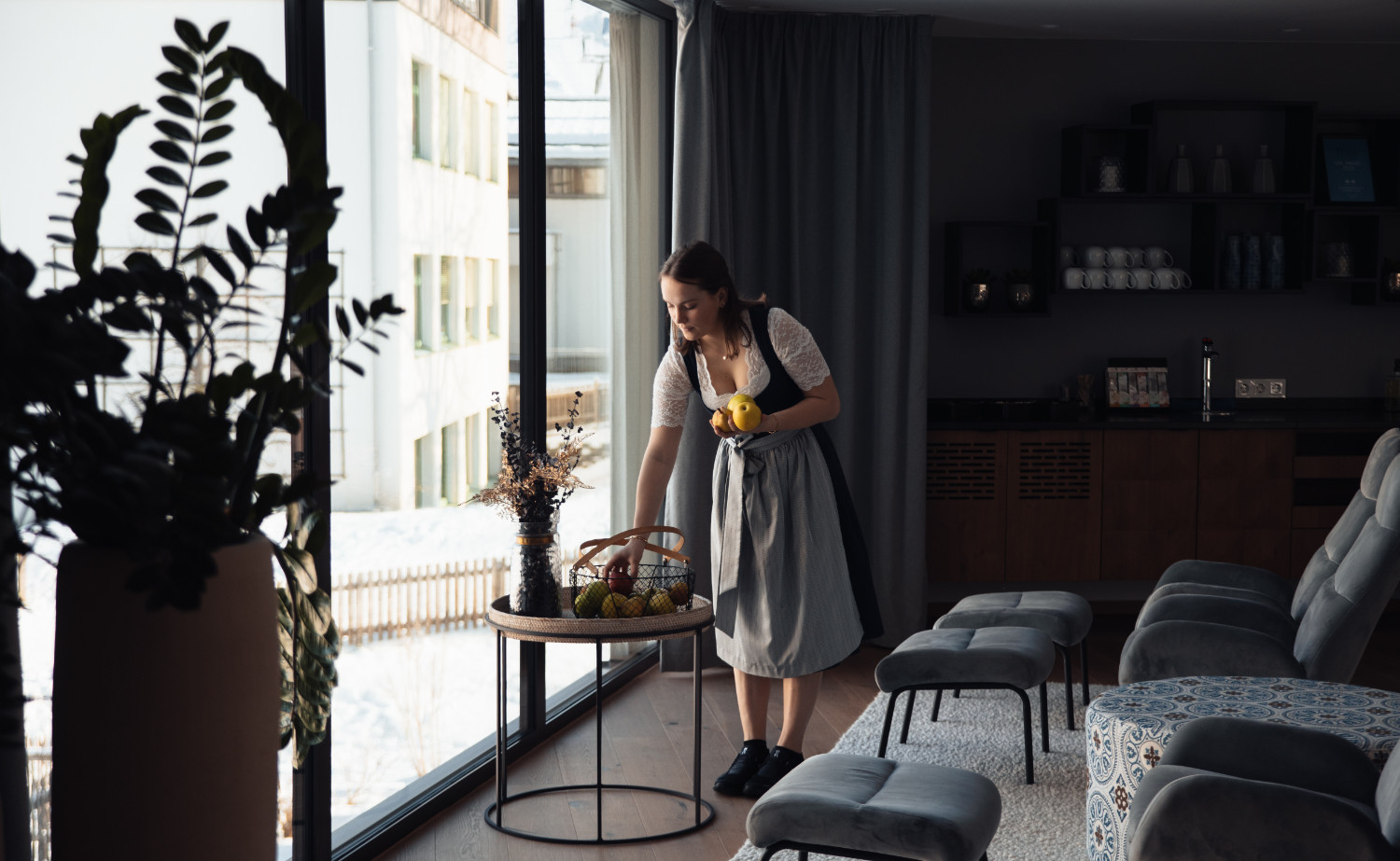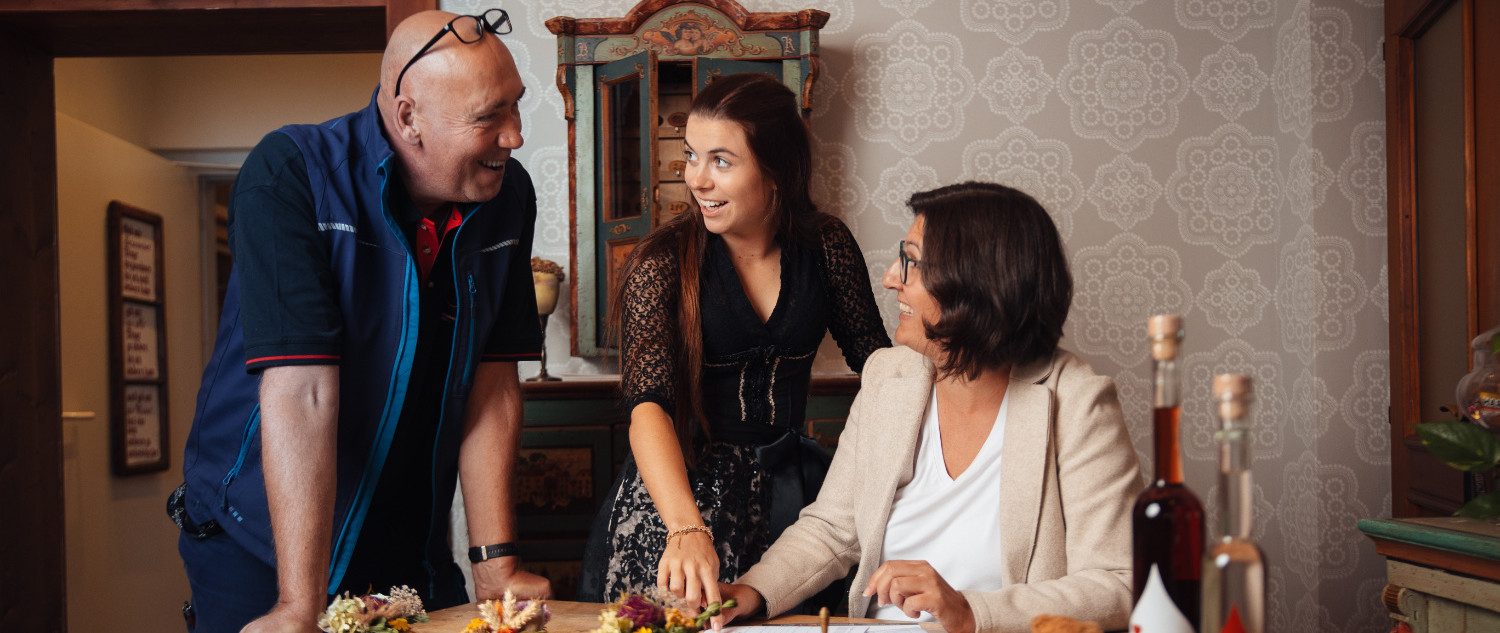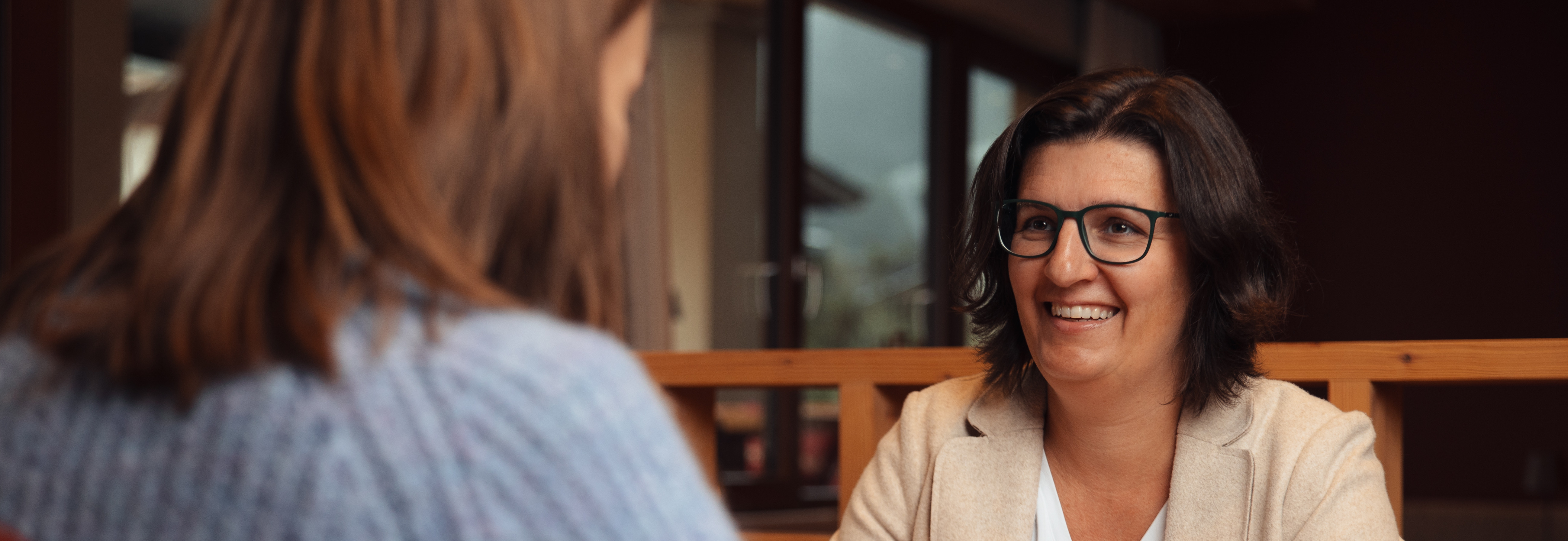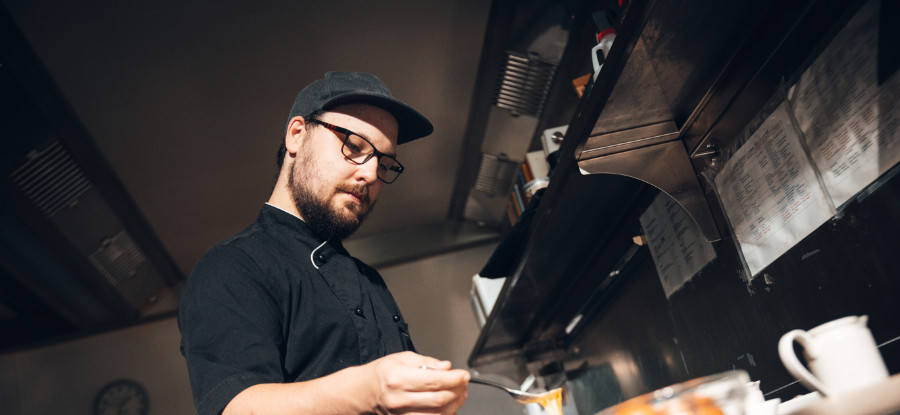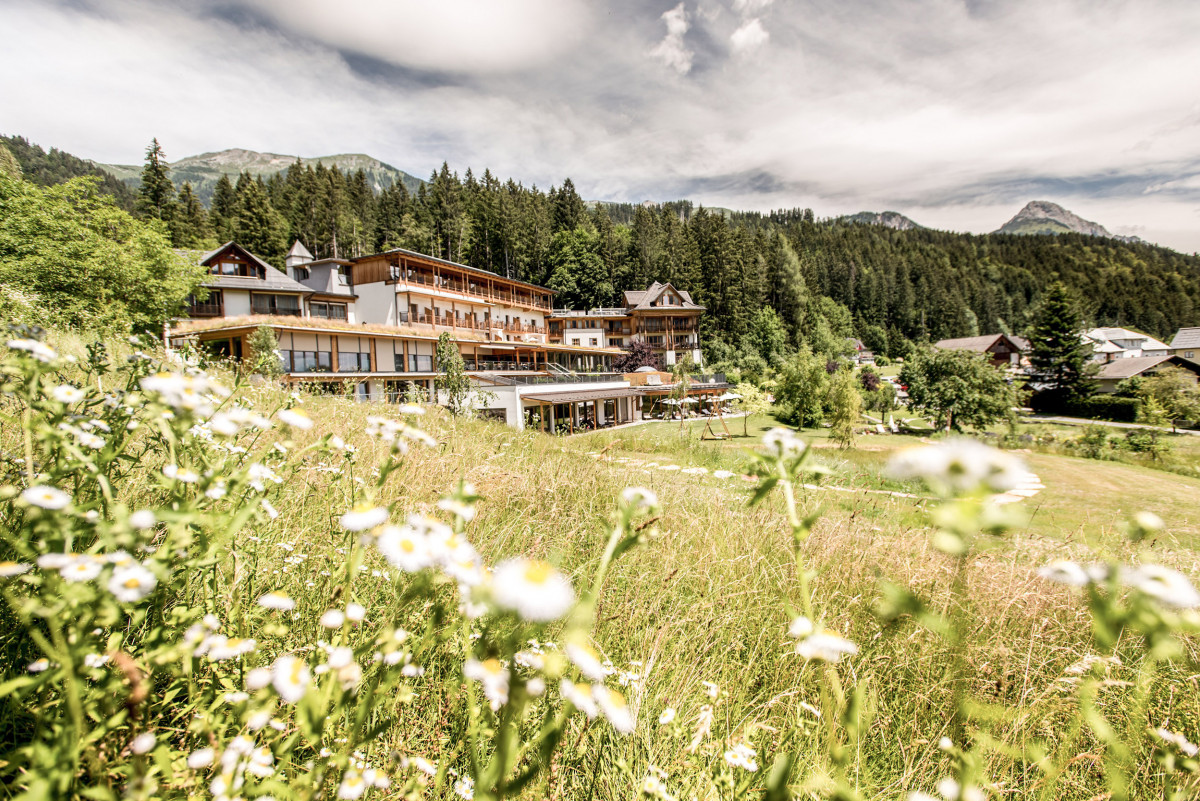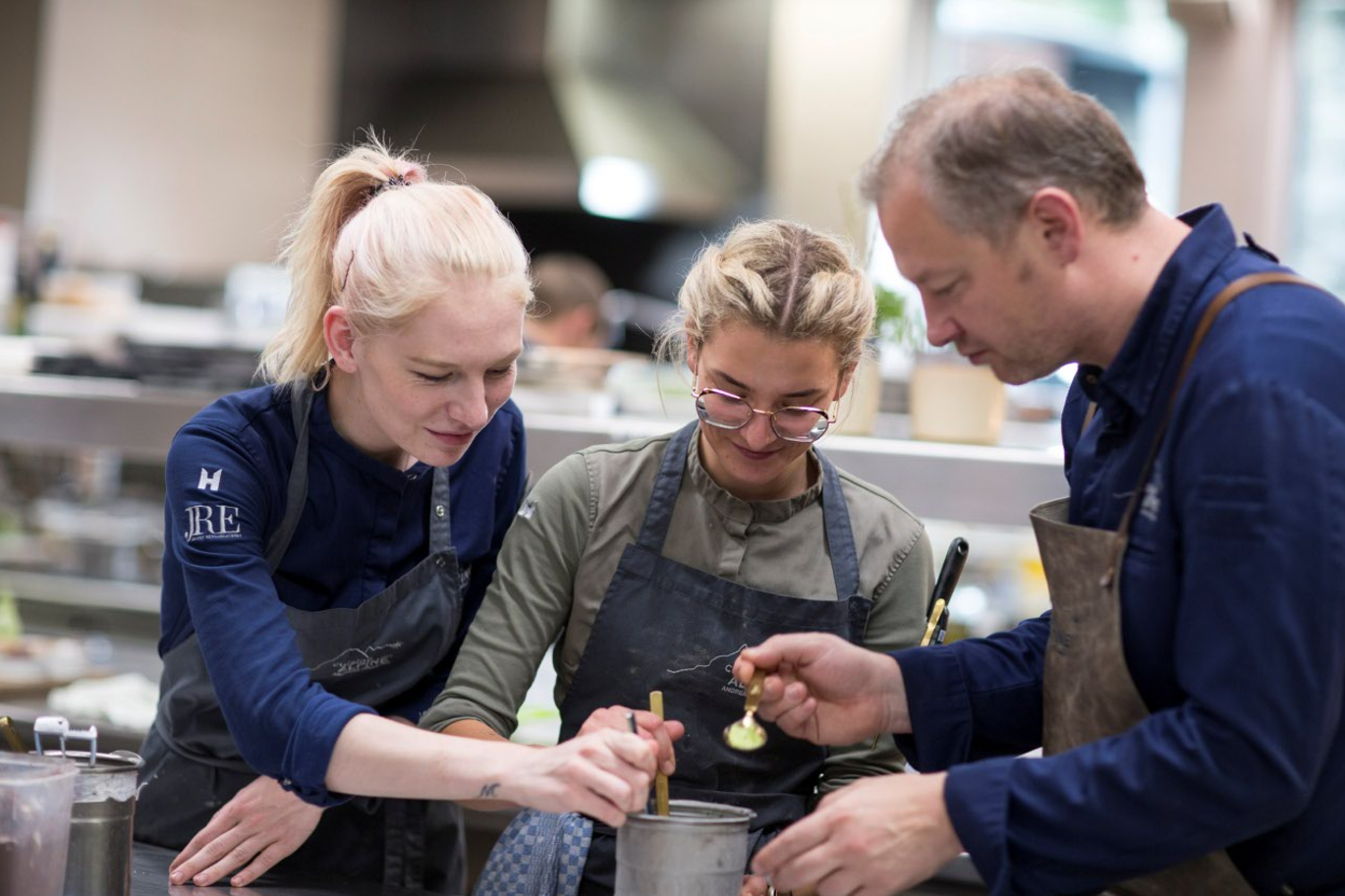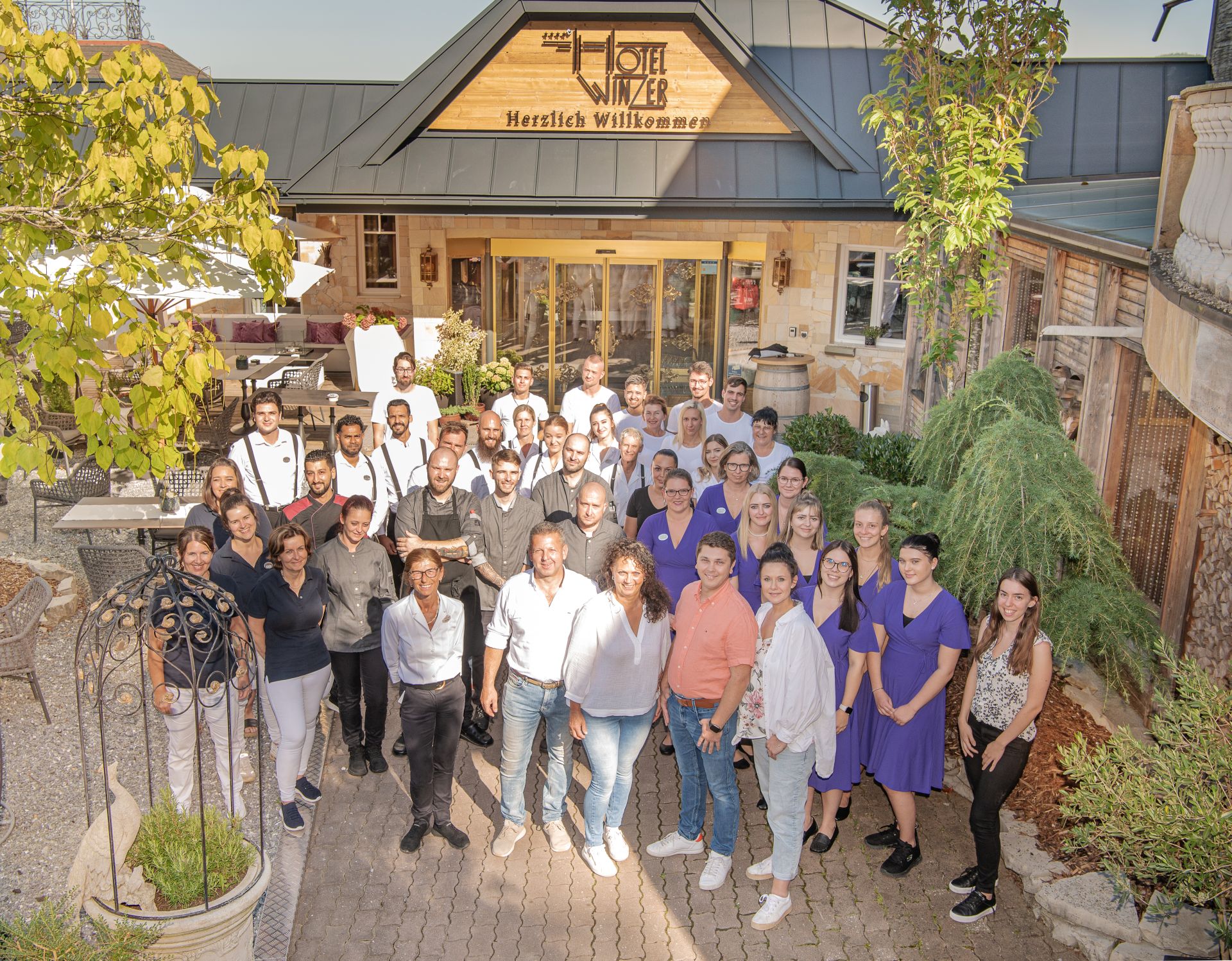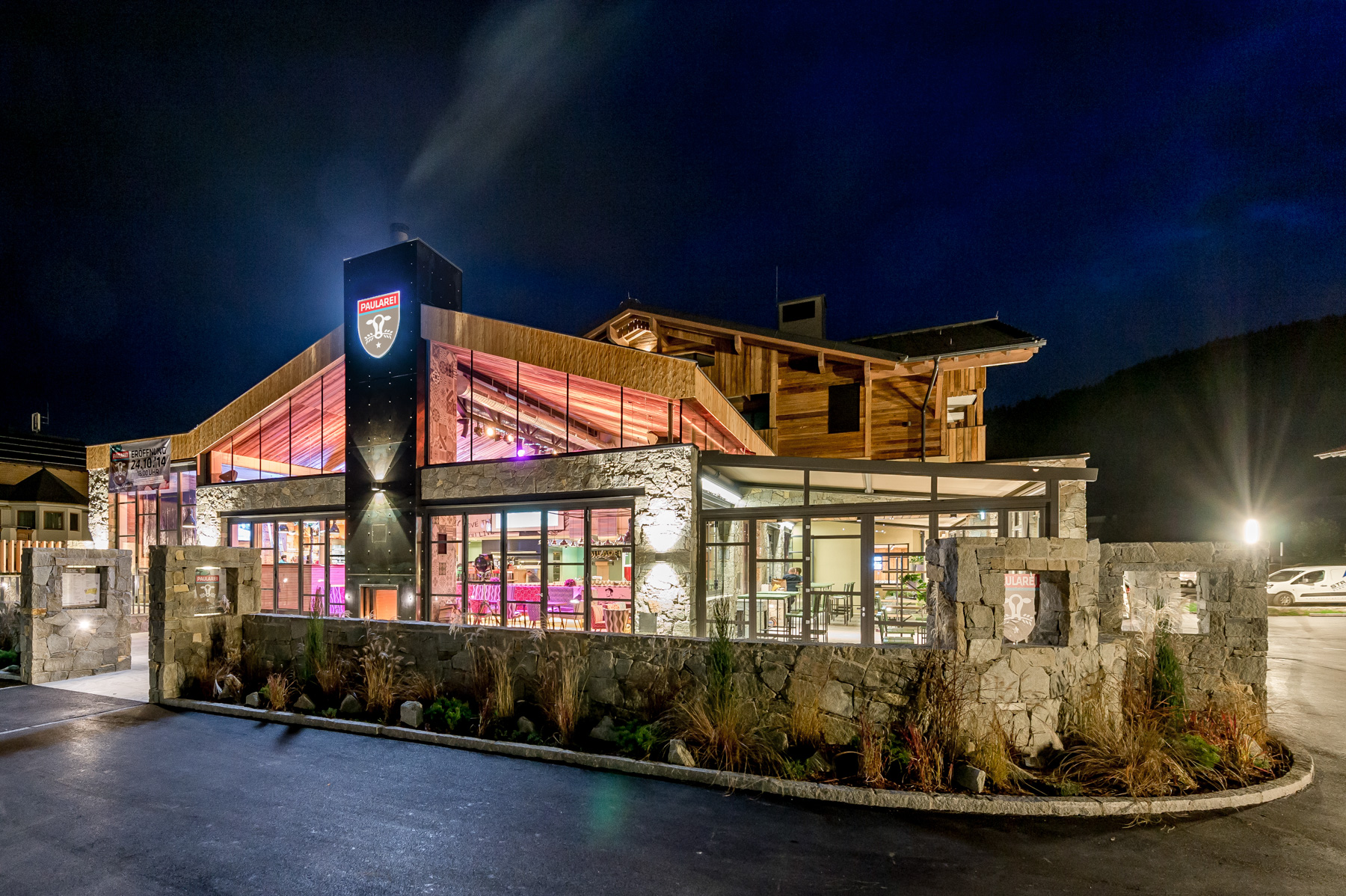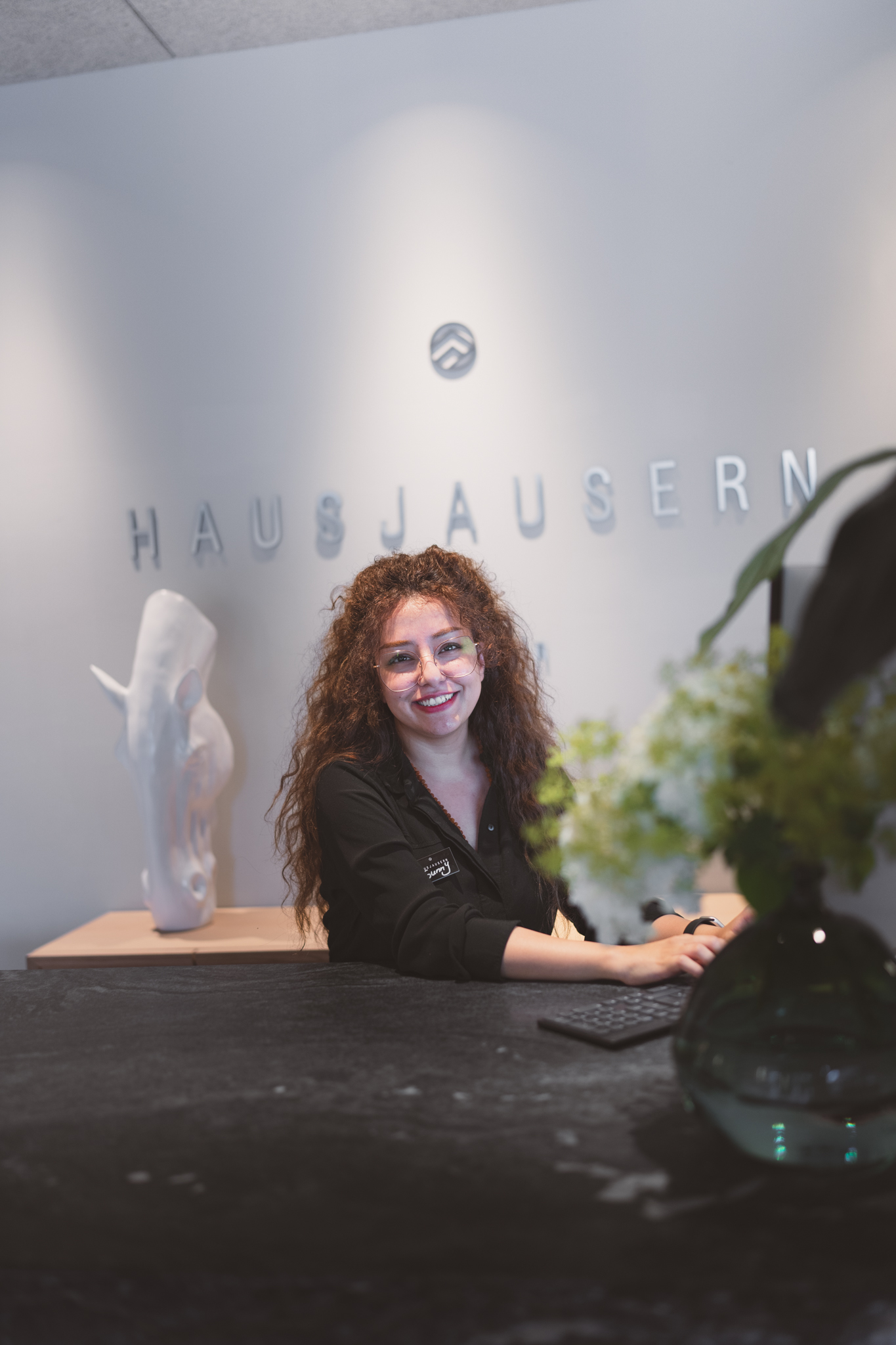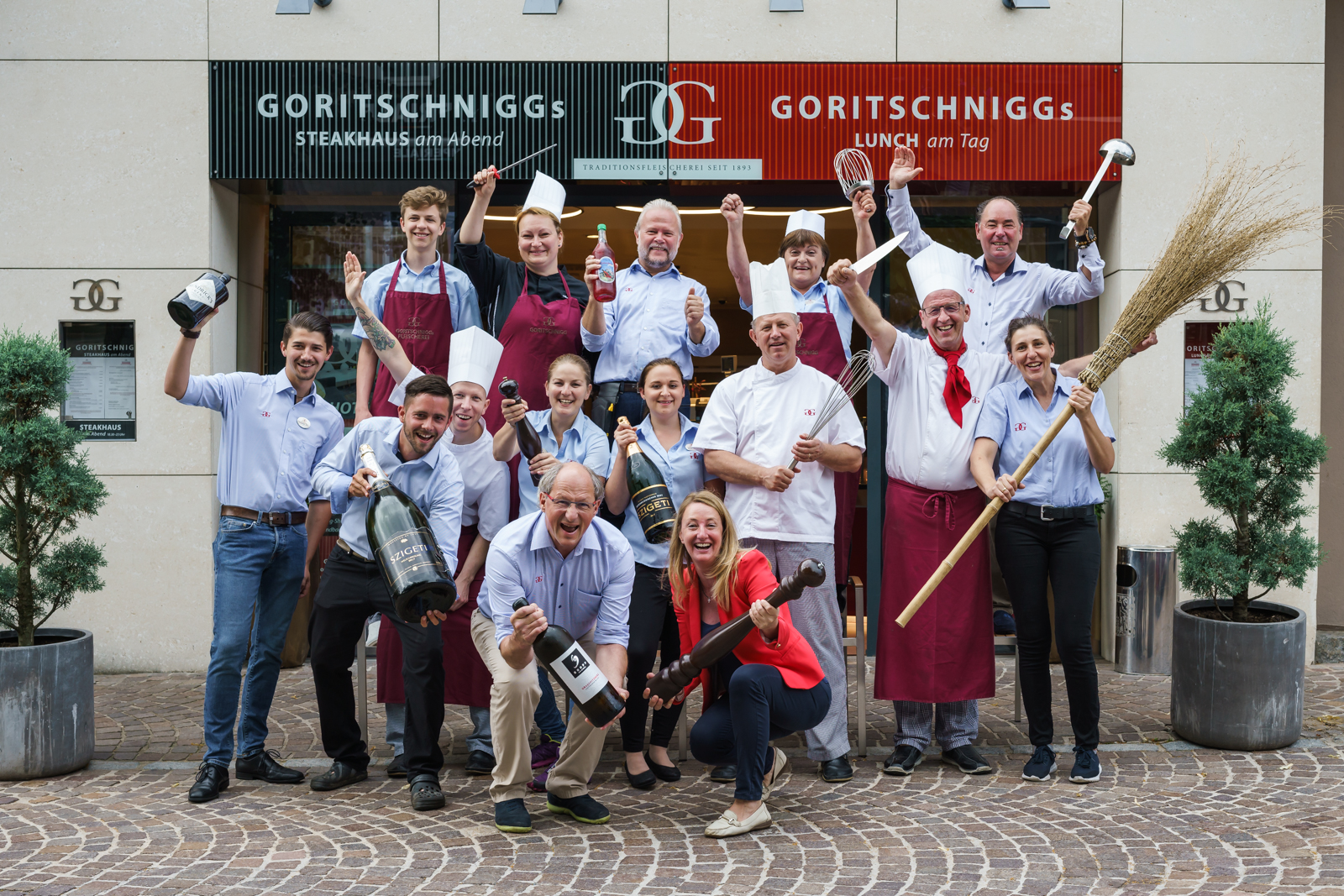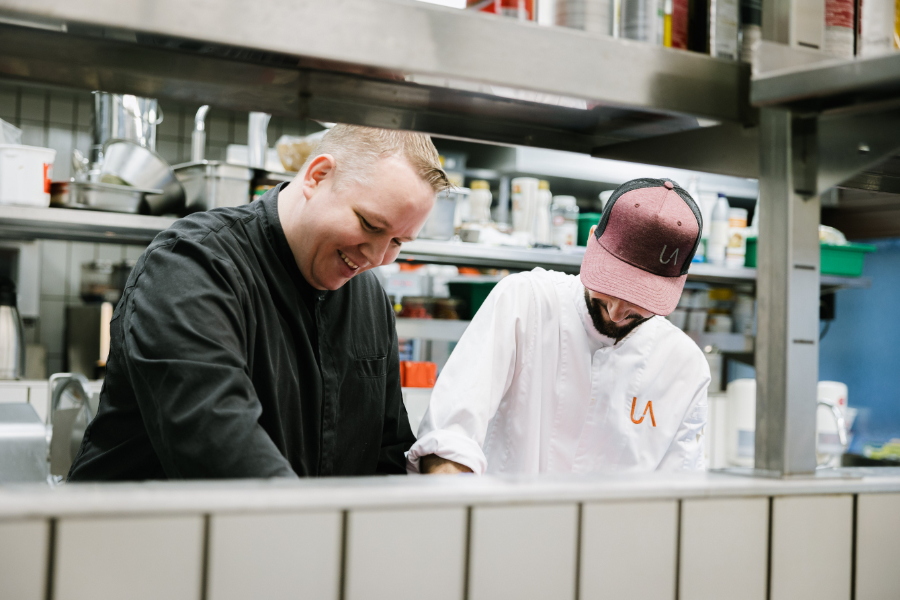
What apprentice chefs need to bring with them
Head chef Sebastian reveals the skills you need to be a chef. Find out more now!
Master chef: a dream job
Master chef: a dream jobSince May 2022, Sebastian Meyer has been head chef at the Übergossene Alm resort at the foot of the Hochkönig. From his own apprenticeship in 2001 to today, it has been a fulfilling journey, as the 40-year-old describes. Today, he trains apprentices himself. What do applicants need to bring with them and what experiences do they still remember from job interviews? We asked them!
You are head chef at the Übergossene Alm Resort, and in 2018 you were awarded two toques. Your opinion: What exactly do you need to be a chef?
First of all: you shouldn't have two left hands if possible (laughs). Of course, you can and must learn a lot in the kitchen, that's clear. But you should definitely have some skill. After all, as a chef you have to do a lot of delicate tasks that require a certain amount of sensitivity - handling fish, for example, not only requires practiced grips, but also a certain amount of fine motor skills.
Basically, however, it always depends on the type of gastronomy you want to work in. Whether it's a restaurant business in a hotel, classic gastronomy in a restaurant or system gastronomy: these areas differ in terms of the demands associated with cooking. In any case, the aforementioned sensitivity is important for the hotel and restaurant industry.
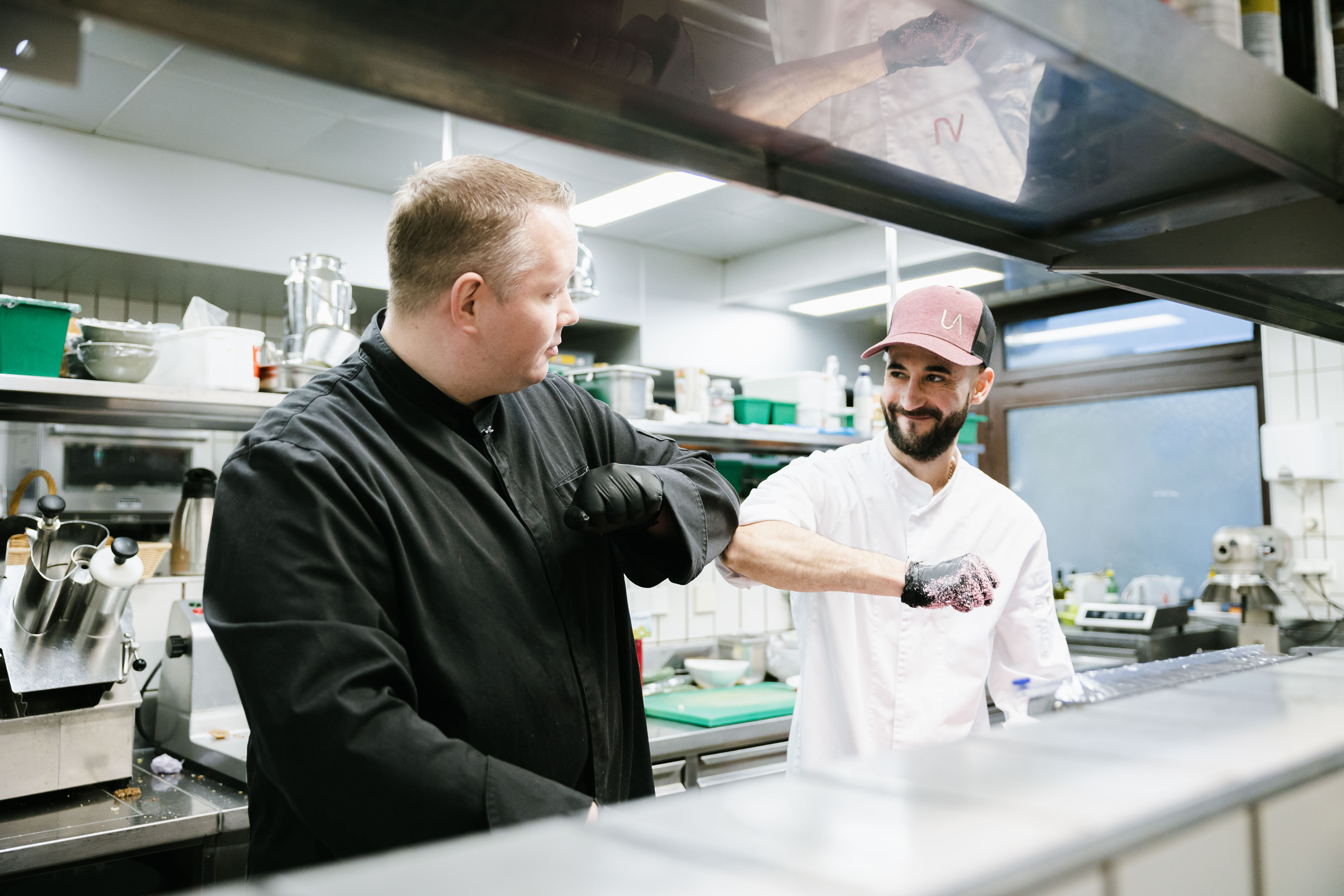
As a chef, you also conduct job interviews. What are the dos and don'ts in a job interview?
One thing that certainly stands out negatively is a chronic lack of interest. It's not uncommon for parents to tell young adults that they should please become a chef. The applicants then sit in front of me and tell me that they want to become a chef, but have absolutely no interest in working in the kitchen, food science or anything similar. When it becomes clear that someone has no interest in the profession at all, I notice that negatively.
Nevertheless, I often bring these people in for a trial run to see if someone is perhaps just shy and then really gets stuck in in the kitchen. But if you see that there's really zero interest, there's unfortunately nothing you can do. In gastronomy, you need a certain enthusiasm for food and nutrition. That doesn't mean that we chefs always eat the healthiest food (laughs), that's for sure. Rudeness is also an absolute no-go for me in a job interview.
What do you notice positively about apprentices?
A positive aspect is, of course, when the apprentice informs himself and is curious. No one is thrown in at the deep end with us. Every apprentice is well supervised and the newcomers are taught everything from scratch. But a certain amount of personal responsibility is also required. And of course it's a positive thing when someone takes out their cell phone during their lunch break and re-reads what food they've just worked on. It definitely makes a good impression when there is interest and passion for the subject.
What can your apprentices expect in their first year?
A lot of cutting, cleaning and putting things away - in other words, learning to understand the warehouse. These are the areas where you learn a lot at the beginning, but you're also involved in the daily routine. You are right in the middle of the action, so to speak. Apprentices should definitely build up a certain basic routine during this time and get a feel for the daily work.
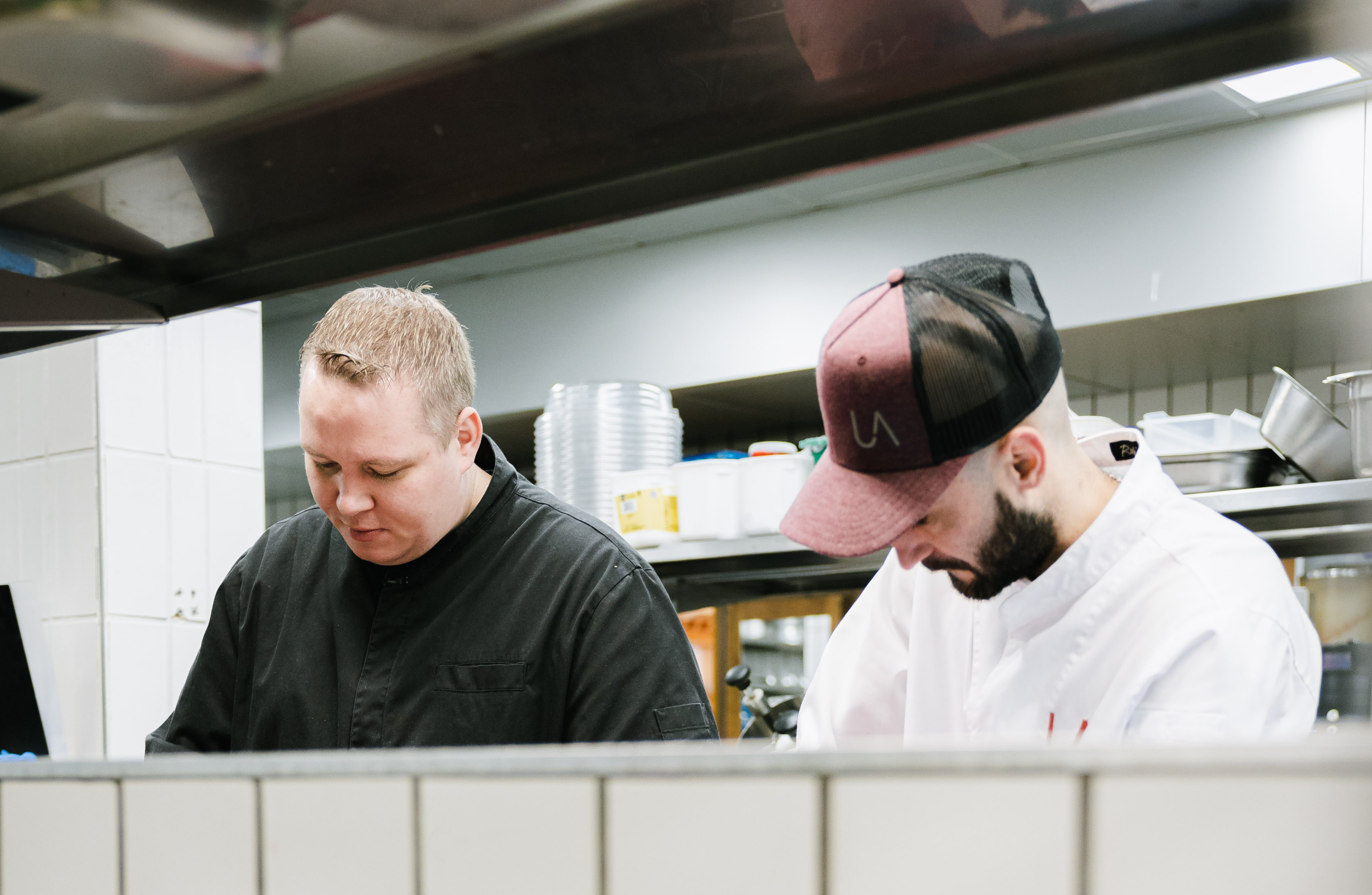
How do you envision the future? How can the catering and hotel industry better appeal to apprentices?
Basically, I would like to see fair treatment of apprentices in all companies. And: that fair conditions are also created for apprentices and that no attempt is made to continue old-fashioned systems. Work and training also need to be coordinated - schools and companies need to work together.
Your most impressive experience with apprentices?
One experience that surprised me a little, perhaps even made me sad, was when a 3rd-year apprentice couldn't tell a cucumber from a zucchini. But you shouldn't be discouraged by such experiences. I always say: keep going patiently!
Thanks to our partner company Übergossene Alm Resort and Sebastian Meyer for the interview!
Discover your dream job now!
Are you looking for a job as a chef in the catering or hotel industry? Then check out our current job offers on HOGASTJOB now! Find out about your future employers - and get in touch!
Do you need help with your application or are you interested in tips and tricks for your HOGAST job? Then visit our blog! There you will find more topics about the most exciting industry in the economy. Looking for an apprenticeship? Then find out more about the most popular apprenticeships in tourism.
